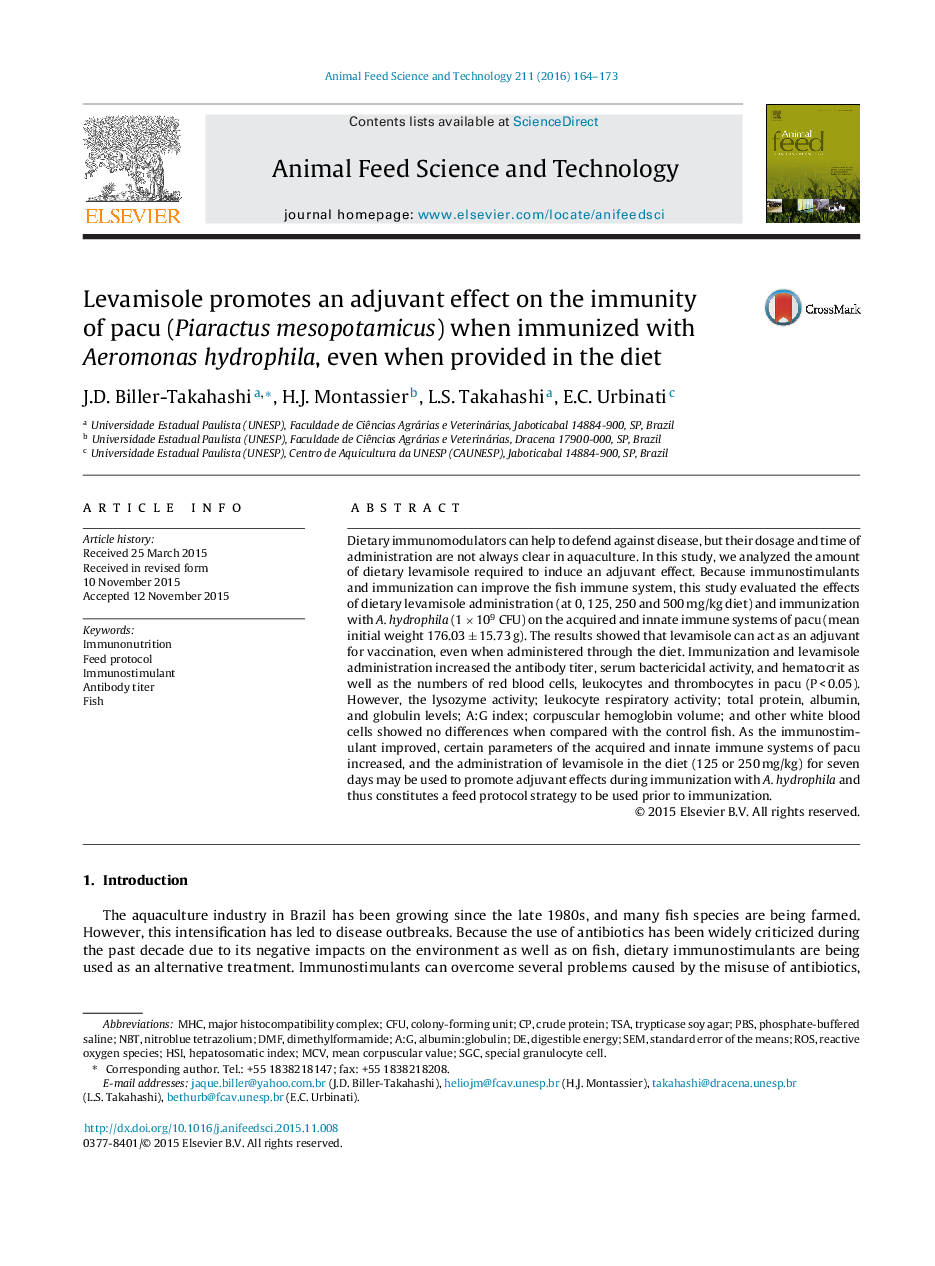| Article ID | Journal | Published Year | Pages | File Type |
|---|---|---|---|---|
| 8491327 | Animal Feed Science and Technology | 2016 | 10 Pages |
Abstract
Dietary immunomodulators can help to defend against disease, but their dosage and time of administration are not always clear in aquaculture. In this study, we analyzed the amount of dietary levamisole required to induce an adjuvant effect. Because immunostimulants and immunization can improve the fish immune system, this study evaluated the effects of dietary levamisole administration (at 0, 125, 250 and 500 mg/kg diet) and immunization with A. hydrophila (1 Ã 109 CFU) on the acquired and innate immune systems of pacu (mean initial weight 176.03 ± 15.73 g). The results showed that levamisole can act as an adjuvant for vaccination, even when administered through the diet. Immunization and levamisole administration increased the antibody titer, serum bactericidal activity, and hematocrit as well as the numbers of red blood cells, leukocytes and thrombocytes in pacu (P < 0.05). However, the lysozyme activity; leukocyte respiratory activity; total protein, albumin, and globulin levels; A:G index; corpuscular hemoglobin volume; and other white blood cells showed no differences when compared with the control fish. As the immunostimulant improved, certain parameters of the acquired and innate immune systems of pacu increased, and the administration of levamisole in the diet (125 or 250 mg/kg) for seven days may be used to promote adjuvant effects during immunization with A. hydrophila and thus constitutes a feed protocol strategy to be used prior to immunization.
Keywords
A:GMCVDMFPBSCFUSGCNBTTSAHSIROSnitroblue tetrazoliumtrypticase soy agarDigestible energyImmunostimulantImmunonutritionAntibody titerstandard error of the meansdimethylformamideHepatosomatic indexFishMHCmajor histocompatibility complexPhosphate-buffered salineSEMcolony-forming unitcrude proteinReactive oxygen species
Related Topics
Life Sciences
Agricultural and Biological Sciences
Animal Science and Zoology
Authors
J.D. Biller-Takahashi, H.J. Montassier, L.S. Takahashi, E.C. Urbinati,
